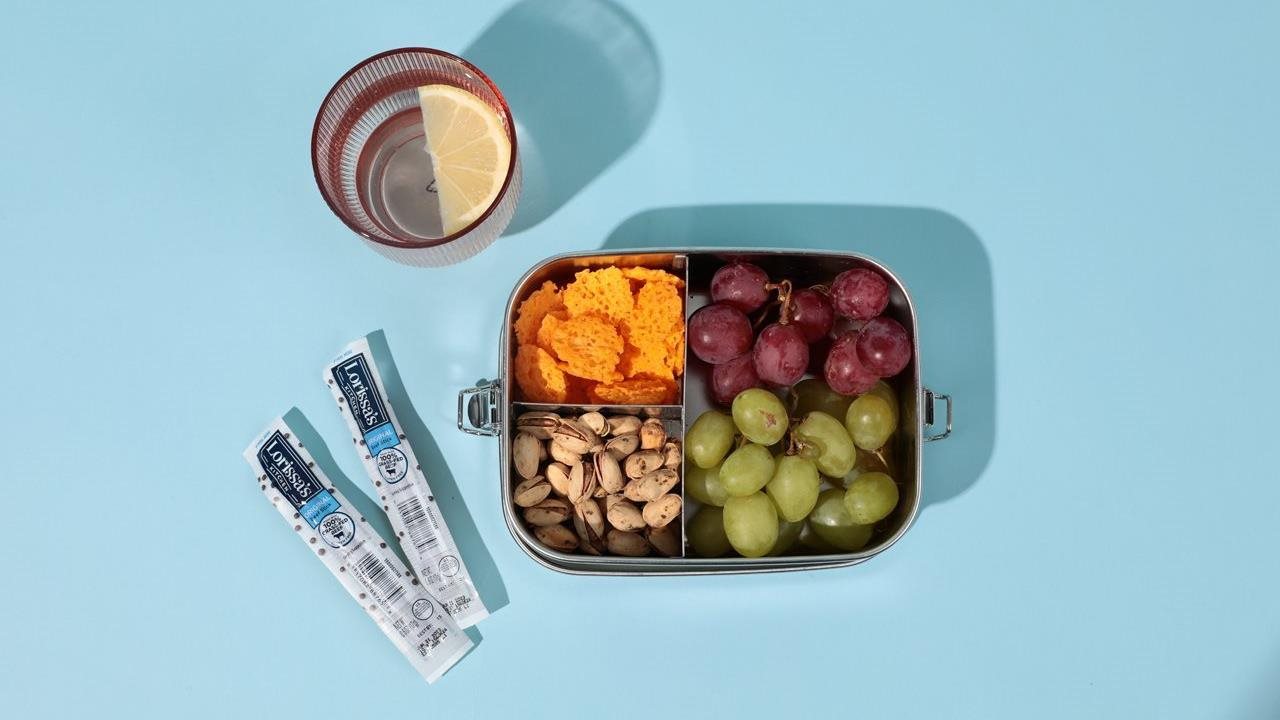
(BPT) – If you’re searching for tips on how to improve what you eat, you’ll often be met with information that’s more confusing than helpful. To help solve this mystery, Registered Dietitian and Nutritionist Amy Shapiro shares not only what she advises her clients to eat, but what she reaches for each day, including her favorite sources of protein.
Up your protein intake at meals
Your body needs protein to help maintain, build, and repair muscle, bones, skin, hair and other basic functions, so it’s important to look for ways to boost your intake at every meal. But what are the best sources of protein?
“My favorite protein sources include cold water fish like tuna, which provides omega 3 fatty acids, plus organic poultry, grass-fed beef, beans and legumes, organic tofu, tempeh, eggs, Greek yogurt and cottage cheese,” Shapiro notes. “All of them provide roughly 7 grams of protein per ounce and contain limited amounts of saturated fat, which you want to eat less of, because saturated fat causes cholesterol to increase, which can lead to heart disease.”
Snacks are an underused opportunity to boost protein
Protein is digested slowly to keep you feeling satisfied longer, without increasing blood sugar levels. By integrating more protein into your snacks, you’ll have more energy and will feel fuller between meals, which can help prevent cravings and overeating.
While you may not immediately think of protein sources when snack time rolls around, Shapiro offers several suggestions for easy, tasty, and portable options that can help add more essential nutrients to your day.
“The best snack choices provide the perfect balance of convenience, nutrition and quality,” says Shapiro.
For busy families, Shapiro recommends protein snacks that can easily be taken on-the-go including:
- Beef jerky
- Beef sticks
- Sealed pack tuna
- Whole grain and seed crackers
- Greek yogurt
- Hard-boiled eggs
- Cheese sticks
- Crunchy edamame
Pair proteins with fresh produce
To get the nutrients your body needs to thrive, Shapiro recommends including as many different colors of fresh produce as you can, every day.
“Fill up your crisper drawers. You can find fresh herbs, vegetables and fruit at most grocers, but I love a good farmers market haul where the food tastes fresh and the seasonal ingredients are abundant,” says Shapiro. “Pair your proteins and produce, such as hummus and veggies, for a hit of fiber, or a beef stick with bright citrus fruit to support hunger and cravings.”
Choosing the best meat-based proteins
When it comes to beef, there are two main options: grain-fed and grass-fed. Shapiro says that the benefit of choosing 100% grass-fed beef is that it is leaner and has a lower saturated fat content than grain-fed beef. Due to its lower fat content, grass-fed beef is also lower in calories than grain-fed options. Grass-fed beef also has higher omega-3 fatty acids that could help lower bad cholesterol and decrease inflammation. Options include 100% lean ground beef, 100% grass-fed steak and 100% grass-fed beef jerky.
For snacking in-transit, Shapiro opts for protein snacks from Lorissa’s Kitchen, including their 100% grass-fed Beef Sticks (Original and Jalapeno flavors) and Beef Strips (Original and Korean Barbecue flavors). Lorissa’s Kitchen snacks are a good source of protein, gluten free and contain no preservatives, added nitrites or nitrates. Even better, they deliver on the taste, nutrition and convenience families are looking for. Stock up on their Mini Beef Stick Snack Packs or 1-ounce single serve sticks for a lightweight snack that’s ready to go wherever you’re going, whether that’s work or a workout, a sporting event or a road trip.
“Beef jerky and sticks made from grass-fed beef are an easy, on-the-go snack option that can help fuel you throughout the day, and are good for post-workout recovery,” adds Shapiro. “Whole foods are a must, but when convenience and ease are top of mind, portable snacks like jerky and beef sticks made with grass-fed beef are great choices.”
Looking for more snacking tips? Visit LorissasKitchen.com/blog.
